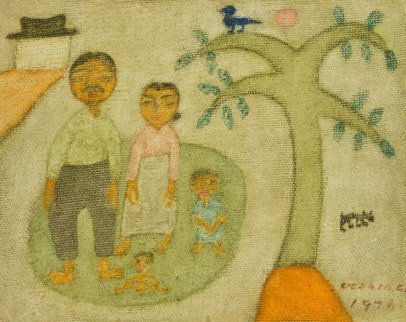Author or Actor? Why Vulnerability and Authenticity is Hard for Asian Americans
At MIT Sloan business school’s ID Lab, one of the most popular courses on leadership focusing on self discovery, students explore deep questions about who they are, what their values are, and how they can lead effectively through understanding themselves. In one of the classes, they talk about vulnerability, not just as a personal trait, but as a leadership practice.
As an executive coach for the MIT Leadership Center, I work with several students in this course each year. When I ask, “What resonated most with you?”, many of my Asian American MBA clients point to the idea of vulnerability and authenticity. They recognize that being vulnerable and authentic is important, but they don’t fully understand what it means or they can’t imagine how to practice it. I sense their internal conflict. They admire leaders who can share their weaknesses and mistakes, and they’re moved by seeing genuinely grounded people and the connection it creates. Also these leaders still command respect. It resonates with my students. But when they imagine doing it themselves, it feels very difficult.
One student client, a Chinese American working in the consulting industry who came to the US early in his life, told me in a session, “I grew up seeing my dad never show failure. He gets very angry when he loses control. That has had a big impact on me.” He developed a personal mantra: “Fake it until you make it.” It was his way of coping, shaped by that upbringing.
The Family, by Chang, Ucchin (1976)
There’s another side of the conversation about vulnerability and authenticity that often comes up in my coaching sessions. My clients and I sometimes ask: “I’m willing and comfortable sharing who I am, my mistakes, my inner thoughts, but could that end up burdening others if I share too much or get too personal?” I am in this camp more often than not. At times, I’ve even felt my ego or a need for reciprocity rising up, thinking, ‘I’ve shared so much about myself and how I see our relationship, and you don’t want to share anything?’
Through these coaching conversations, we often reach the understanding that vulnerability, especially in leadership, isn’t about revealing flaws or telling everything about ourselves. We come to see that vulnerability looks different for different people. What I’ve come to share, based on my own experience, is that vulnerability is about being at ease with who we are and creating a space that feels open and safe for others. That’s what allows deeper conversations to happen. And from there, we can build stronger relationships, surface mistakes more easily, learn faster, and solve problems more effectively.
I find my Asian American clients’ difficulty in understanding and practicing vulnerability is connected to the “saving face” culture that we and our parents grew up with. To “save face” is to preserve dignity, respect, and honor in social relationships. Losing face, in many Asian cultures, brings shame not only to myself but also the family or group. Based on the importance of filial piety (following parents’ direction and will) and group based thinking, this creates intense pressure to avoid anything that might look like failure or imperfection. This pressure often drives hard work, responsibility, and the pursuit of excellence. These traits can serve us well until they become overused. When we are constantly trying to save face, we lose touch with what we really feel or want. Beyond working hard and excelling, we fall into being someone we are not, pretending to be kind, pretending to be too strong, and pretending to know everything. In that status, unconsciously, many Asian Americans are unconsciously thinking unhelpful assumptions “If I show weakness, I’ll disappoint others.”, “If I don’t get it right, I don’t belong.”, and “If I’m vulnerable, I’ll be seen as incompetent.”
I find my Asian American clients’ difficulty in understanding and practicing vulnerability is connected to the “saving face” culture that we and our parents grew up with. To “save face” is to preserve dignity, respect, and honor in social relationships. Losing face, in many Asian cultures, brings shame not only to myself but also the family or group. Based on the importance of filial piety (following parents’ direction and will) and group based thinking, this creates intense pressure to avoid anything that might look like failure or imperfection. This pressure often drives hard work, responsibility, and the pursuit of excellence. These traits can serve us well until they become overused. When we are constantly trying to save face, we lose touch with what we really feel or want. Beyond working hard and excelling, we fall into being someone we are not, pretending to be kind, pretending to be too strong, and pretending to know everything. In that status, unconsciously, many Asian Americans are trapped into unhelpful assumptions such as ‘If I show weakness, I’ll disappoint others.’, ‘If I don’t get it right, I don’t belong.’, and ‘If I’m vulnerable, I’ll be seen as incompetent.’ I saw and heard so many reactive actions based on these assumptions from my Asian American clients.
I decided to write a book to offer a different perspective on Asian Americans and leadership. At its core, the book explores how self-authoring, a concept from Robert Kegan’s Adult Development Theory, is essential to effective and sustainable leadership. I connect this to the ways in which deeply rooted Asian cultural forces, such as filial piety, group-based thinking, and deference to hierarchical norms, often stand in the way of Asian Americans becoming self-authoring. The book also offers experience-based insights and practical suggestions for how we can move through, and ultimately beyond, these internalized constraints.
One Thai American client who worked at a fast-paced startup shared how she felt like a completely different person depending on whom she was with, coworkers, friends, family, even different people within the same group. She was proud of being adaptable. But one day she realized, “I don’t know which one is really me.” She called it code-switching. It was exhausting, too. That became the starting point of our coaching: Who am I, really? I too, in my early career, worked hard to talk fast, drop jargon and names in conversations to compensate for what I perceived to be inadequate social ability and low confidence.
It’s not that we shouldn’t change our behavior when we face needs for improvement. We should. We need to continue improving ourselves. The question is are you the author of your own story, grounded in who you are, writing new chapters as you grow? Or are you an actor, performing a script others handed you, switching roles depending on the scene and audience?
The work, I think, is to become the author. Imperfect. Evolving. But real. And to lead from that place.

